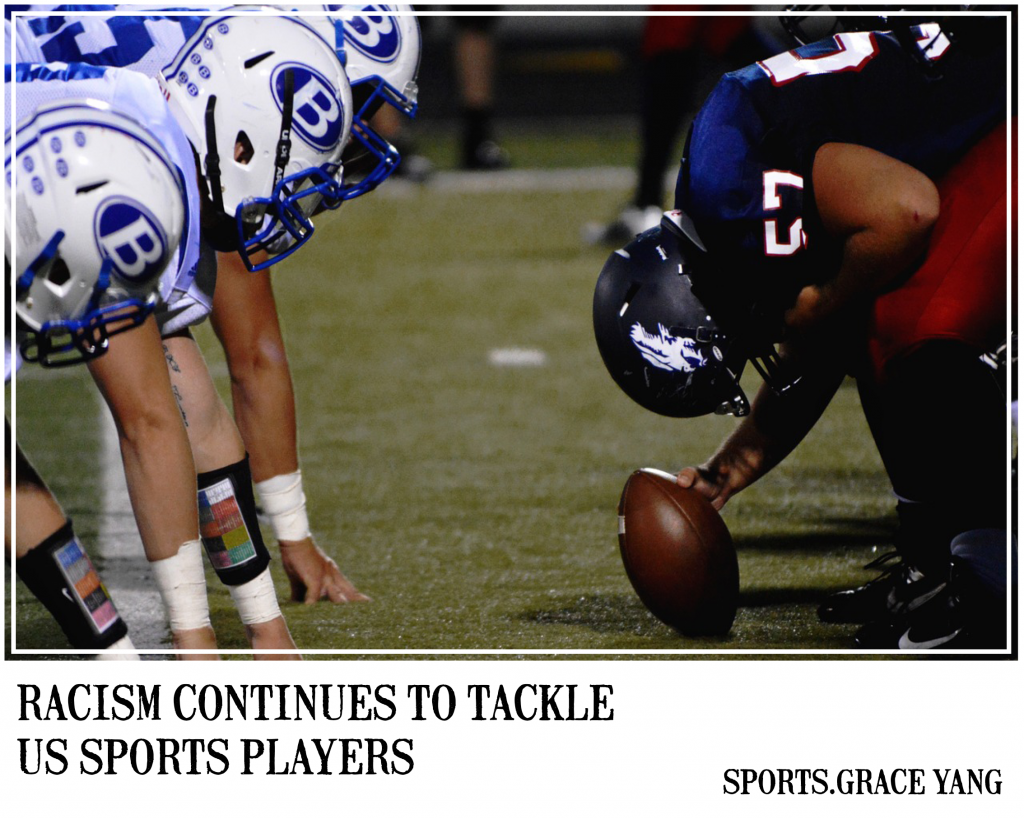The wave of racism in America seems to have resurged back on surface—only, this time in sports. Although the intense heat of racist remarks and physical punches between different races has ameliorated over the years, its root still stays hidden and ready to hit back anytime.
“It’s hard to believe that racism still exists today especially in sports,” said Ben Kim (10), one of the sports players at SIS. “Sports is supposed to be all about sportsmanship and competing against each other on a fair ground. Racially discriminating the sports players is simply absurd and it really can’t make any difference in the game.”
Certainly, such racist segregation in sports remains a worldwide phenomenon. Yet, most cases start with conflict between whites and blacks. According to USA Today, a star black female kicker, Ashton Brooks, from a Michigan high school was openly mocked on Instagram for her race. Specifically, one of the users uploaded a post that showed a white female teenager hugging her counterpart in a full gorilla suit, which the gorilla was identified as Brooks. In another instance, a pair of football playing brothers from Dallas left their school after the racist remarks from their teammates who directly included racially derogatory terms such as “slavery” and “bananas”. Although the pair has decided to transfer to another team, the fact that the students victimized their own teammates definitely tells about the ongoing mistreatment regarding race especially in high schools.
“I heard that these racist remarks also take place on professional grounds,” said Sarah Jung (10), another sports player. “The most important step in eradicating these racism would be dependent on how the victims react to such remarks. If they keep on submitting themselves to the issue, racism will only grow in a matter of time.”
However, it is not only in high school basketball courts that take racism to extreme. Even though many professional athletes are not usually known for their social activism, they often find many ways to express some antipathy when facing racism. For instance, according to Aljazeera, Los Angeles Clippers owner Donald Sterling was caught on tape expressing some biased views about African-Americans. It appears that most of the professional players are trying to respond to such evident racism with indifference, or even more with confidence and humor. A Barcelona soccer player Dani Alves responded to a racist taunt from one of the audiences who threw a banana at his feet. Rather than succumbing to such racial remarks, Alyes instead picked up the banana, peeled it, and ate it before heading to proceed a corner kick.
Whether it be a high school basketball court in Florida or a professional track field in California, racism continues to tackle down some of the players. The answer to solving such resurfacing phenomenon in sports seems to depend on the responses from the victimized players themselves.

